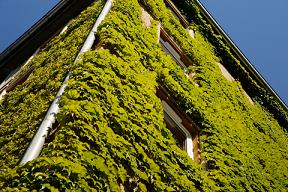Ideas to Eco-Renovate your House
Nowadays, we all want to minimise environmental damage and reduce our energy bills. Eco-renovation is most commonly known as “Ecovation.” It consists of using energy efficient materials, or replacing your current house materials, with natural materials when refurbishing your French property.
Saving energy, conserving materials and recycling make more ecological sense in the short term and a significant financial sense in the long term. Indeed, you can cut your domestic fuel bills by up to 50%! Eco-Renovation will then allow you to plan a wide range of home improvements. Let’s have a look at different ideas to eco-renovate your house:
Off-grid Photovoltaic Energy Systems
Houses fitted with solar panels will enable you to save energy, but at rather steep prices This course will cover the basics of photovoltaic, from system design and load calculation through the various types of solar panels, batteries and inverters and their suitability in different situations. Generally expensive, we suggest other solutions if you cannot afford these materials.
Building with Straw Bales
Building with straw bales is a cheap and natural way for a very low impact on environment. You can build walls with straw bales, basic carpentry and plastering/rendering. However, please try to avoid power tools because standard bales are fragile.
Rainwater Harvesting
Rainwater harvesting is one of the oldest methods of collecting water for domestic use. Indeed, it is the most convenient way for an eco-renovation of your house. It simply involves the collection of water from a surface on which rain falls – e.g. a bucket or a tub that you put under the gutter of your French property removing any leaves or dirt (you could add a filter too). Then you just store this water for later use.
The water can then be used both inside and outside the house. In your garden it can be used for watering plants and lawns, washing the car, and of course filling the swimming pool. Inside your house the water can be used to flush loos, run washing machines, do the washing up etc. Also, after analysis and filtration, it can be classified as eau potable, meaning you can drink it!
Rainwater also has several other benefits: its natural softness. Watering the garden will then require less fertiliser due to its natural properties. People with sensitive skin will find rainwater far milder and less irritating. Logically, this system is better adapted for a property in a region with consistent rainfall, which obviously varies from region to region. For example, it usually rains less in the South West, but more heavily than in the North. That’s why it is paramount to choose the right size reservoir to allow the system to function efficiently.
Don’t forget to ask your Mairie if your town has any tax credits or grants available for this type of system which could help you even more.


